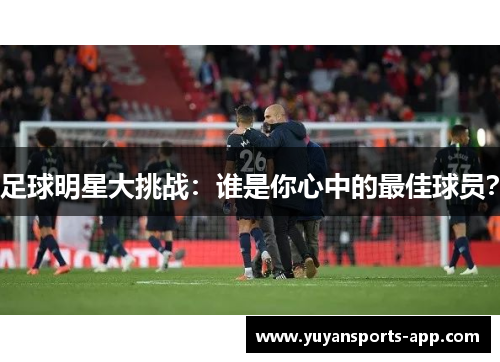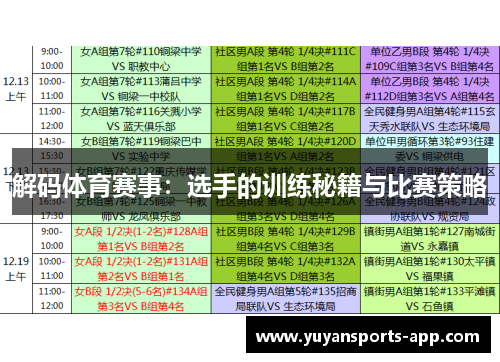An exploration of fitness assessment and training programs for English Premier League (EPL) players is the focus of this 3000-word article. The article begins with an overview of the current practices and innovations in measuring and enhancing player fitness, followed by detailed discussions on four key aspects: physiological assessments, nutritional strategies, training methodologies, and recovery protocols. Each aspect delves into various techniques and best practices aimed at optimizing player performance and endurance.
1、Physiological Assessments
Physiological assessments are crucial for understanding the baseline fitness levels of EPL players. These evaluations often include VO2 max tests, lactate threshold assessments, and body composition analyses. Such tests provide insights into cardiovascular efficiency, muscular endurance, and overall metabolic health. By analyzing these metrics, sports scientists and coaches can tailor individualized training programs to improve weaknesses and maximize strengths.
Furthermore, advancements in wearable technology allow for real-time monitoring of players' physiological data during training and matches. This data-driven approach enables immediate adjustments in training intensity and recovery strategies, ensuring optimal performance and injury prevention throughout the season.
The integration of data analytics with physiological assessments has revolutionized how teams manage player fitness, promoting a more scientific and personalized approach to training.

2、Nutritional Strategies
Nutrition plays a pivotal role in sustaining the high energy demands of EPL players. Effective nutritional strategies not only support physical performance but also aid in recovery and injury prevention. Teams employ sports nutritionists to design customized meal plans that optimize carbohydrate, protein, and micronutrient intake based on individual player needs.
Hydration strategies are also critical, with players monitored closely to ensure adequate fluid intake before, during, and after matches. Supplements such as electrolytes and amino acids may be used to replenish nutrients lost through sweat and exertion.
Moreover, dietary supplements undergo rigorous testing to comply with anti-doping regulations, safeguarding the integrity of the sport while enhancing player health and performance.
3、Training Methodologies
The diversity of training methodologies in the EPL reflects an evolution towards more holistic approaches to fitness. High-intensity interval training (HIIT), periodization techniques, and functional training are commonly used to enhance aerobic capacity, strength, agility, and speed.
Training sessions are meticulously planned to simulate match conditions, focusing on tactical drills and positional play. Coaches utilize data analytics to identify performance trends and adjust training loads accordingly, balancing physical exertion with recovery periods.
Incorporating sports psychology into training programs is also gaining traction, helping players manage stress, enhance focus, and maintain peak mental fitness during high-pressure situations.
4、Recovery Protocols
Effective recovery protocols are essential for minimizing fatigue and reducing the risk of injuries among EPL players. Post-match recovery strategies often include cryotherapy, massage therapy, and compression garments to alleviate muscle soreness and promote circulation.
雨燕体育Players are encouraged to engage in active recovery activities such as swimming or yoga to enhance flexibility and expedite muscle repair. Sleep quality is prioritized, with clubs providing sleep monitoring tools and creating optimal sleeping environments to facilitate restorative rest.
Furthermore, the use of recovery analytics allows teams to track individual recovery rates and adjust training schedules accordingly, ensuring players remain fresh and resilient throughout the demanding season.
总结:
The exploration of fitness assessment and training programs for EPL players reveals a comprehensive approach to enhancing performance and longevity. By integrating advanced physiological assessments, tailored nutritional strategies, diverse training methodologies, and effective recovery protocols, clubs optimize player fitness and mitigate injury risks. These integrated approaches not only improve athletic capabilities but also promote sustainable career longevity in professional football.
Through ongoing research and technological advancements, the EPL continues to set benchmarks in sports science, ensuring its athletes remain at the forefront of global football competition.











